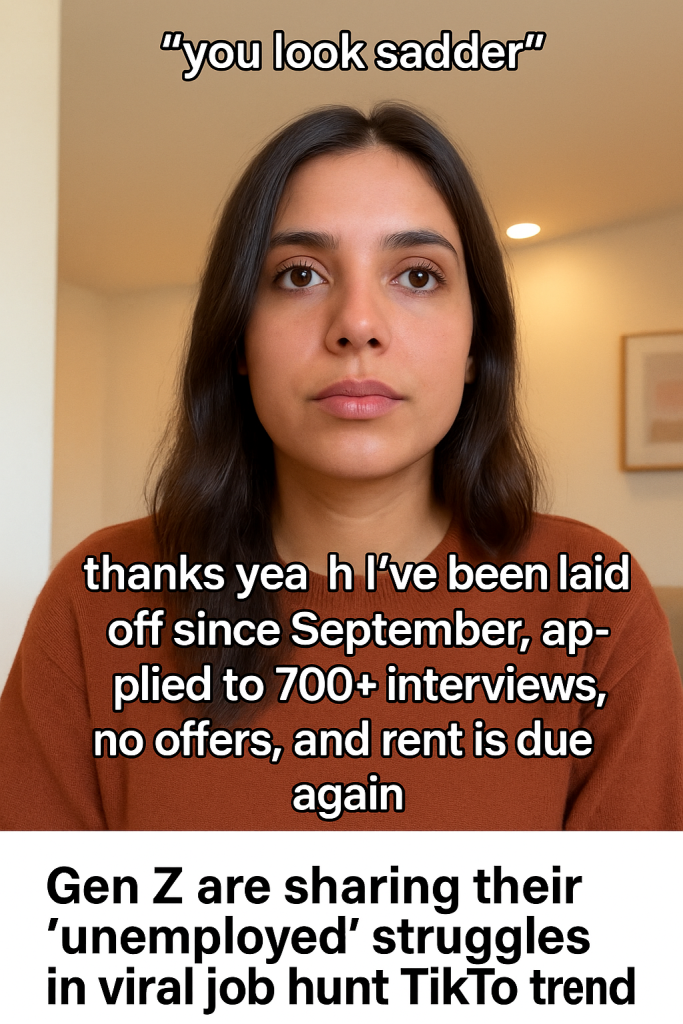As the job market tightens in 2024, many unemployed members of Generation Z are turning to social media, candidly sharing their job search struggles on TikTok. The posts reveal a growing frustration with intense competition, dwindling opportunities, and the rising influence of artificial intelligence (AI) in recruitment processes.
One viral TikTok video captures the essence of this hardship. It features a single individual captioned with the emotionally raw line: “you look sadder” and the reply, “thanks yeah I’ve been laid off since September, applied to 700+ jobs, 30+ interviews, no offers, and rent is due again.” This statement encapsulates the daunting journey many young job seekers face today.
Unprecedented Competition
For Gen Z—roughly those born between 1997 and 2012—the economic ripple effects of recent global disruptions continue to be deeply felt. Many entered the job market during or just after the pandemic-induced recession, only to encounter a hyper-competitive landscape. The oversupply of candidates vying for limited entry-level and mid-tier positions is a key factor contributing to prolonged unemployment spells.
One TikTok user described relentlessly applying to hundreds of jobs, attending multiple interviews, yet receiving no offers. Their story is not unique; thousands of others express similar experiences in hashtags related to job hunting and unemployment. These testimonials reveal a pattern of exhausting efforts yielding few results.
The AI Factor: Help or Hindrance?
Adding complexity to the challenge is the growing role of AI-driven recruitment tools. Automated resume screeners and algorithm-based interview assessments are increasingly common, designed to streamline hiring by filtering large candidate pools. However, young applicants often feel disadvantaged by these systems.
Some Gen Z job seekers report that their customized resumes, carefully tailored for human recruiters, get filtered out by AI filters. Others note a lack of transparency about how these algorithms score or rank candidates, leading to feelings of confusion and helplessness in the process.
Experts note that while AI can improve efficiency, it can also exacerbate challenges for applicants lacking experience or the resources to game these digital gatekeepers.
Mental Health and Financial Pressures
The candid TikTok videos often highlight not just the professional hurdles but the emotional toll of prolonged unemployment. Rent payments, student loans, and basic living expenses do not pause during job searches, and many young people feel intense pressure. The public sharing of these struggles has created a sense of community among frustrated job seekers, providing outlets for empathy and support.
What’s Next for Gen Z Job Seekers?
While the challenges are significant, ongoing discussions fueled by these social media testimonies draw attention to the need for systemic solutions. Advocates call for increased transparency in AI recruitment, expanded career support services, and investments in job creation tailored to young professionals.
In the meantime, the TikTok platform remains a crucial space where Gen Z continues to share their stories, cope collectively, and seek advice amid a tough job market shaped by economic shifts and technological disruption.
As one of the TikTokers poignantly put it, “We’re not just numbers in an algorithm—we’re people trying to build lives.”



